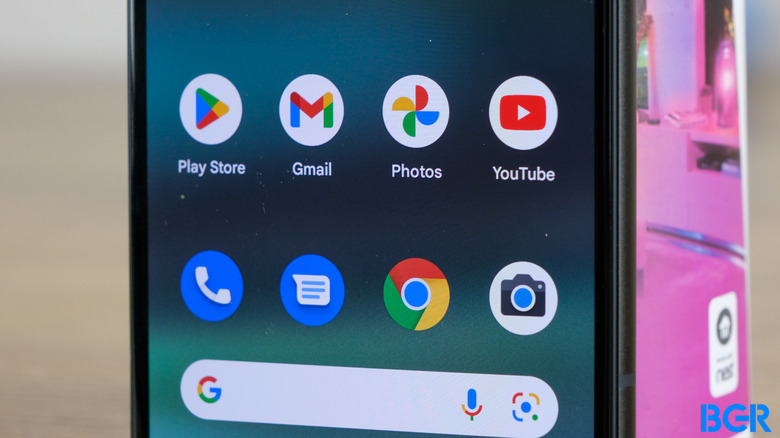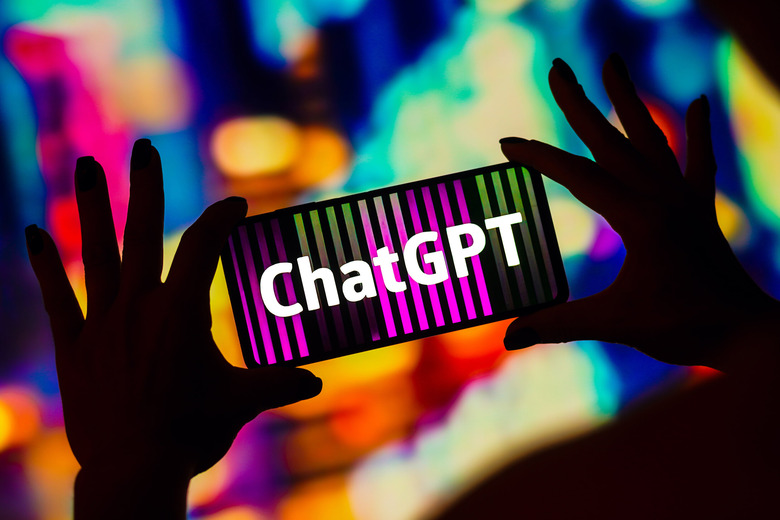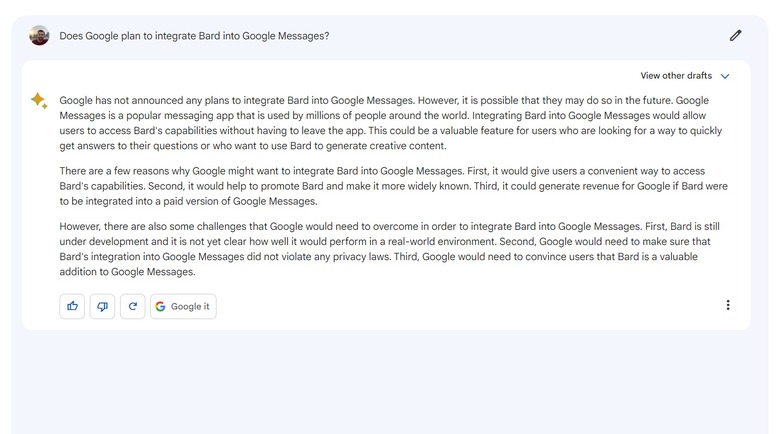Google Search Is Getting AI Features Like ChatGPT, And I Have So Many Questions
ChatGPT shocked Google late last year, reportedly sending the company into panic mode as it scrambled to come up with its own generative AI products. The swift arrival of Bard shows that Google was developing AI products like ChatGPT all along, only it never felt pressured to launch them. But with ChatGPT reaching GPT-4 intelligence, Google is now looking to deploy more AI products to compete. According to a new report, Google is working on a brand-new Google Search experience that incorporates a conversational bot like ChatGPT.
That sounds incredibly exciting at first. But I also think it's a little terrifying. With Google infusing Search with AI, we will finally realize how much data Google collects about us. That's because the revamped Google Search experience will deliver "a far more personalized experience than the company's current service, attempting to anticipate users' needs."
Project Magi and the other Google AI products
The quote above is how The New York Times describes the new Search product, which will follow a different, simpler effort called Project Magi. The results of Project Magi might be unveiled at Google I/O 2023 in a few weeks and could become available to users later this year.
Magi was reportedly created in "sprint rooms," where Google designers, engineers, and executives were working on new AI features to be added to the current Google Search experience. Magi will still include ads like the current Google Search experience.
But the new Google Search could also answer questions about software coding or even write code, just like ChatGPT. Google may place an ad under the answers, The Times says. That's based on existing documents on the matter.
Magi will initially be available in the US, with one million users allowed to join at launch. Google will supposedly expand it to 30 million users by the end of the year.
Google is also working on other AI products to complement Search:
- Google Earth mapping might support AI search
- ChatGPT-like conversations might lead to music search
- GIFI would use AI to generate images in Google Image search results
- Tivoli Tutor would teach users new languages via AI conversations
- Searchalong would let users ask questions while they surf a certain web page.
Google Search's AI redesign sounds like the real deal
The AI tools above might bring generative AI features to Google Search products, but Google isn't happy stopping there. The Times learned that Google has scrambled to redesign Google Search to include tools similar to ChatGPT.
"The new search engine would offer users a far more personalized experience than the company's current service, attempting to anticipate users' needs," the report said. "The system would learn what users want to know based on what they're searching when they begin using it," The Times describes the new Search product. "And it would offer lists of preselected options for objects to buy, information to research and other information. It would also be more conversational — a bit like chatting with a helpful person."
I have already explained that Google needs to address ChatGPT privacy and accuracy matters to turn Search into a great AI product. At the time, I was referring to reports of what The Times describes as Magi.
The Google Search overhaul sounds equal parts exciting and terrifying. A ChatGPT-like AI that's always online and knows everything about you to the point where it can predict your moves sounds incredible. It could be immensely useful to the end-user. But it'll also put front and center Google's capability of tracking you.
I have privacy questions and so should you
We've always known that Google collects plenty of data about us for personalized ads. With the revamped Google Search, we'll see it in action. The AI would remember practically everything about you. And that could do wonders for Google's ad business. Personalized ads could become even more effective than before.
All that makes me wonder what sort of control Google will give us over our data. Will we be able to erase our AI history? Will the AI truly forget our data? What about incognito AI browsing? Will incognito AI even be a thing?
The Times report notes that Google is terrified that Samsung might make Bing the default search engine on Galaxy phones, with Bing Chat's ChatGPT being the reason Samsung is considering the movie. Well, I'm equally terrified of what chatbots will mean for user privacy.
However, unlike OpenAI, Google has experienced intense scrutiny over its products in the past few years. And, since Google has infringed on user privacy more than once, it knows how to prevent it. Or at least, pretend like it does. Therefore, I'd expect Magi and the unnamed Google Search overhaul to offer clear privacy protections before they roll out to users.
Make no mistake, however, I am excited about what AI can bring to online search experiences, Google's included. That said, we have no idea when the overhauled Google Search product will be available to users. Until then, Magi should tide us over.



